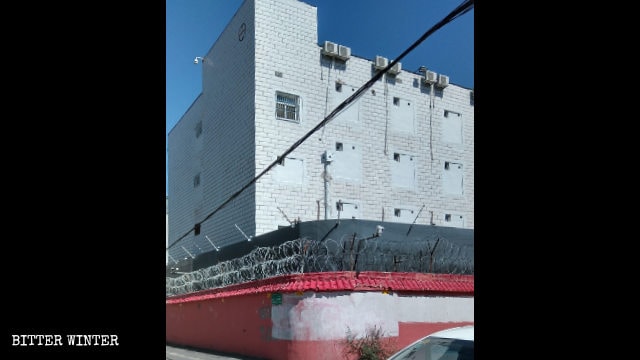03/12/2020LI BENBOA+ | A-
An ex-detainee and relatives of those who have died in transformation through education camps share their horrifying experiences with Bitter Winter.
by Li Benbo
Rights activists and relatives of those interred in Xinjiang’s transformation through education camps are raising concerns that the spread of the coronavirus poses impending dangers to everyone detained in unsanitary conditions with no proper medical care. Uyghurs in the diaspora have appealed to the World Health Organization to investigate the matter and asked the international community to put pressure on China’s regime to release the detained. The CCP called these concerns “rumors to slander China’s policies.” But those who have spent time in the dreaded camps and their family members testify to the contrary: detainees are at high risk of contracting infectious diseases.
A former detainee in one of these camps told Bitter Winter that six months after he was detained, he was diagnosed with tuberculosis. Because of his condition, he was released early but is still under the state’s surveillance.
“When I left the camp, two other men in our cell were diagnosed with tuberculosis,” the man said. “They did not show any symptoms in the beginning, but they soon developed a fever and started coughing.” He suspects that he was infected because he had to share dishware with other inmates.
He described to Bitter Winter the terrible condition in the camp: 15 people had to share a cell about 30 square meters in size, were given small plain steamed buns with no nutritious value and boiled Chinese cabbage for three meals a day. On one occasion, he overheard the camp’s doctor complaining to the administration that the detainees are malnourished and in the weak physique.
Starvation, living in constant fear, physical and mental abuse, no proper medical care, all these and other factors have had adverse effects on the health of most detainees, many have lost a lot of weight, their immunity has weakened. All these make them susceptible to infectious diseases.
“My father was in good health when he was taken away, but he got ill in the camp,” said the son of an imam from Xinjiang’s Hotan prefecture who died from pneumonia in one of the Xinjiang’s camps in 2018. The family was not allowed to take his remains, and officials threatened to detain the son if he were to cause problems. “My father has died in captivity, and he doesn’t even have a tomb,” the distraught man told Bitter Winter.
A man from Xinjiang’s capital Urumqi provided Bitter Winter with a photo of a transformation through education camp, which used to be a house for the elderly. Mostly Uyghur and Hui women are held there in cells with bricked-up windows, with only small openings, the size of a book, left for the light and air.

The interned women have no access to medical care, and they are mistreated and beaten by guards, which is especially detrimental to those who are ill. Sometimes, with deadly outcomes.
“My husband had a chronic stomach problem, he could not eat or sleep in the camp,” said a woman, whose 56-year-old husband, an imam, died because he was not given proper medical care. “More than a dozen Muslims were detained in a small cell with poor air circulation. He could not receive treatment in time.”
The woman added that after over a year in the transformation through education camp, her husband’s condition worsened sharply. During one of her visits, the husband told her that he felt worse, was unable to eat. The wife immediately approached the camp administration, pleading to release her spouse for treatment, but she was ignored.
“He was a good man,” one of the family’s friends commented. “What’s the crime in praying and worshiping? The CCP has ruined their life.”

